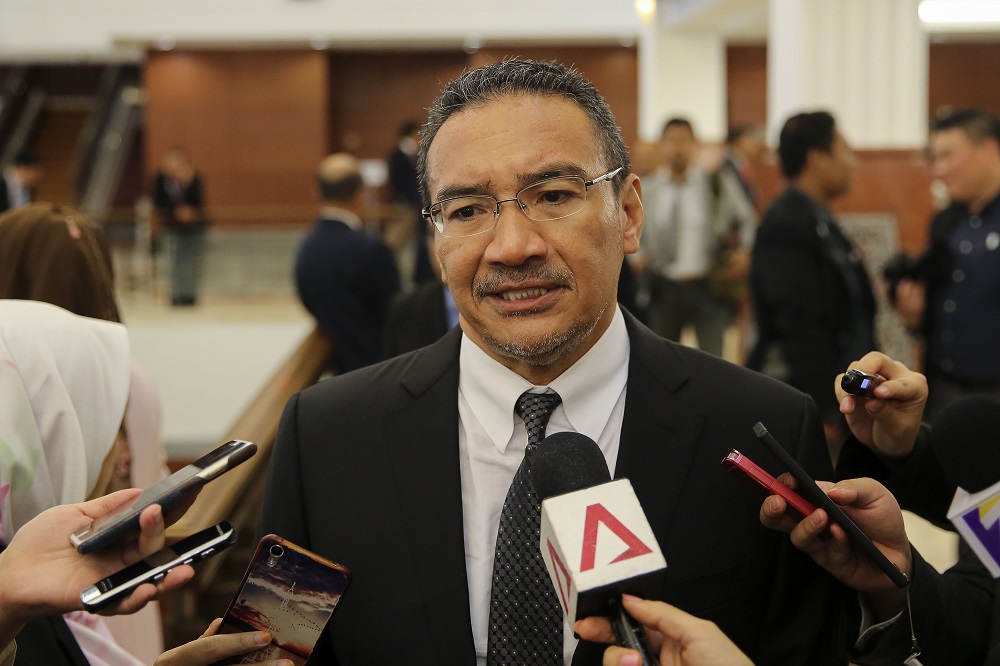Australia/Israel Review
Asia Watch: True to form
Oct 6, 2020 | Michael Shannon

Outside of the Middle East, Malaysia is arguably one of the world’s most anti-Israel countries – a country where vanishingly few have ever even met a Jewish person, let alone an Israeli. As it is elsewhere in the Muslim world, conspicuous support for the Palestinians is voiced at the highest levels of the Malaysian government.
Indeed, it’s hard to conceive of an event that would shift this paradigm. The unprecedented Abraham Accords between Israel and two Gulf states in the heart of the Arab world elicited predictable responses across the main political groupings, viewing the deal primarily through the prism of Palestinian interests.
Foreign Minister Hishammuddin Hussein said Malaysia viewed the normalisation of relations between the UAE and Israel as the sovereign right of the former, but reiterated Malaysia’s “long-held position that the creation of an independent Palestine through a two-state solution, based on the pre-1967 borders, with East Jerusalem as the capital of Palestine as the only viable solution to the Palestine-Israel conflict.”
Representing the largest constituent party of the governing coalition, UMNO Deputy President Mohamad Hasan said, “Although it is the sovereign right of a country to recognise the Israeli regime, it is clearly against the solidarity of the Islamic state towards Palestine and its people.”
Mohamad also accused Israel of acting treacherously towards Palestinians, Muslims, and the peace process. “The rights and homeland of Palestine are not merely items that can be traded with political recognition of a tyrannical regime,” he said.
The conservative Islamist PAS, a fellow ruling coalition partner, made its position known via a resolution unanimously adopted by its general assembly in mid-September, urging all Muslims and Islamic governments to “protest and condemn the recognition of Jerusalem as the capital of Israel as well as any form of normalisation of diplomatic relations with Israel to curb the expansion of its political power and occupation of Palestine.”
The assembly also condemned “the actions of the Arab League, UAE and Bahrain which recognised the normalisation of diplomatic relations with Israel, which is a form of violation and hostility towards the Ummah.”
Meanwhile, former Prime Minister Mahathir Mohamad predictably slammed the normalisation agreement concluded between the UAE and Israel, describing it as a “step backward”.
In remarks to This Week in Asia newspaper, Mahathir said: “The agreement will divide the Islamic world into warring factions where the Israelis would be able to pour fuel on fire in this conflict.”
“The agreement will increase the warring parties’ ability to fight each other, and there will be no peace even between Islamic countries,” he said, arguing that the deal would strengthen the Israeli claim that Palestine is a property of Israel.
The opinion columns are another barometer of political debates, and there was near unanimity about the Abraham Accords.
In the New Straits Times, under the plaintive title “How much do we care about Palestine?”, former ambassador to the Netherlands and Fiji Dr Fauziah Mohd Taib argued, “It is not for Islamic solidarity that hardcore supporters like Malaysia must hold firmly to the Palestinian cause. It has to do with humanitarian rights of the people who are slowly being forced to abandon their own land to give way to the colonisers.”
The New Straits Times’ own editorial leader, a good indicator of mainstream political opinion in Malaysia, stated that “To sign a treaty with Israel while the Palestinians’ land remains occupied, as the United Arab Emirates and Bahrain did on Tuesday, is a big mistake.”
The Times conceded that “the UAE and Bahrain are independent countries and they are free to do what is good for their national interests,” but concluded:
“Israel can’t strip a people of their land and pray for peace. Neither Israel nor the Middle East will have peace so long as the Palestinians are denied their rights… Ultimately, justice brings peace. The Americans and Israelis may ignore this, but the Arabs mustn’t.”
However, a balancing argument was published in the Malay Mail by Khalid Ghanim Alghaith, the United Arab Emirates’ Ambassador to Malaysia, who reminded Malaysians that, “many countries, including Organisation for Islamic Cooperation (OIC) members, have developed relations with Israel over the past decades.”
“Sadly, we have all come to realise that the boycott of the past years did not fulfil the aspirations of the Arab peoples in general and the Palestinian people in particular,” the Ambassador continued. “We, therefore, believe in the necessity of breaking the deadlock in the political process and to promote a two-state solution, where Palestine and Israel live side by side in understanding, peace and prosperity.”






